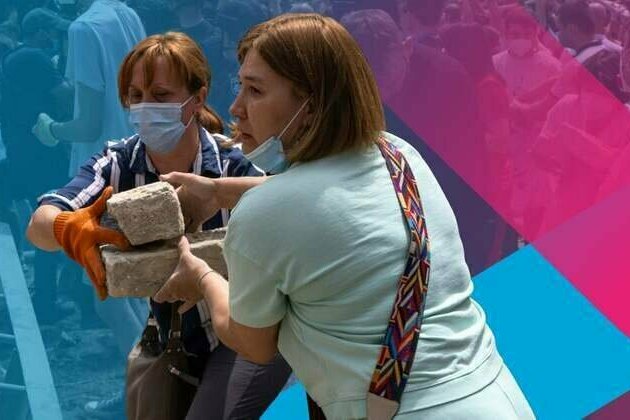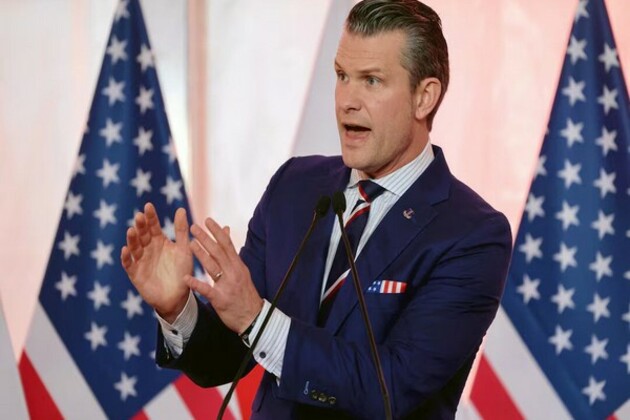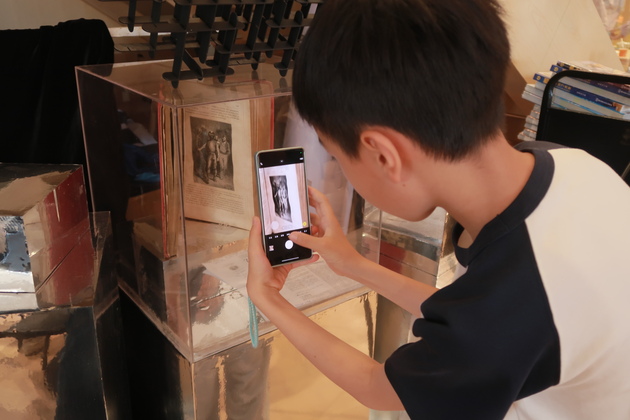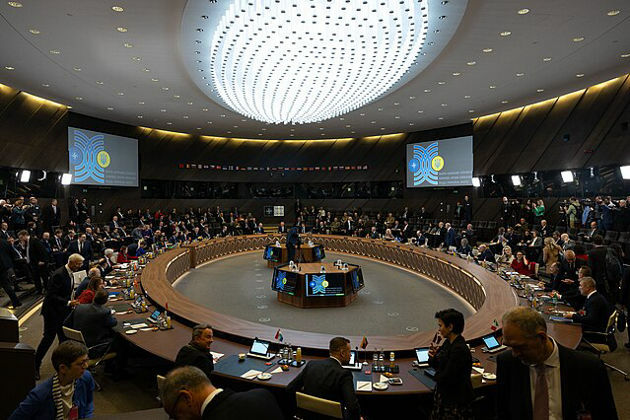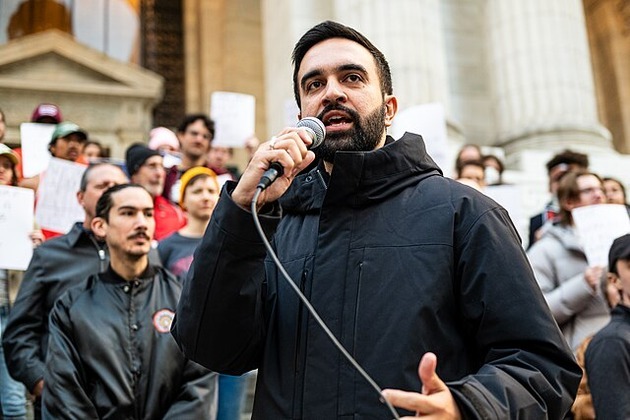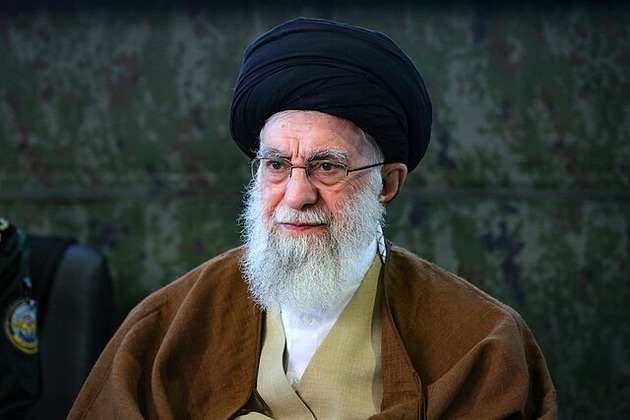The deportation-to-call-center pipeline, and the makings of a Mexican Dream
CN
27 Jun 2025, 17:00 GMT+10
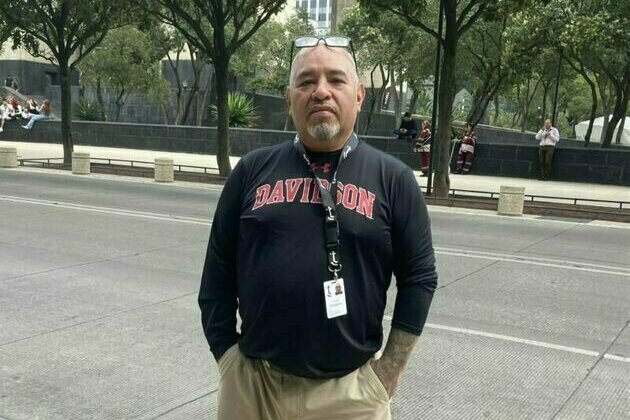
MEXICO CITY (CN) - Originally from Mexico City, Carlos Castaneda crossed into the United States with his family when he was 16.
He spent 10 years in Los Angeles, then 20 in Arkansas. He built himself a quiet life there, surrounded by nature in a big house with a pool. But he was deported in 2003 after a traffic stop, then again in 2015.
Before his second deportation, authorities gave Castaneda a 12-month prison sentence - and a warning.
"The judge told me, 'Don't come back. Next time, I'm giving you five years,''' the now 54-year-old recalled in a recent interview.
Back in Mexico City, Castaneda found work at call centers.
He now works for the company TTEC, formerly known as TeleTech. Headquartered in the Denver metro area, the company employs 60,000 people at call centers worldwide.
"There's tons of them around the country: around Mexico City, on the border in Tijuana [and] down to Polanco," said Castaneda, who has worked at several over the years. "There's good ones and bad ones. It's kind of like: The less questions they ask, the lower you get paid. The more questions they ask, the higher you may get paid. It depends on the call center and the person."
In Mexico, many deportees end up at call centers like this. A symbiotic if sometimes difficult relationship, one might call it the deportee-to-call-center pipeline.
Call centers often don't inquire about employee backgrounds and are open to paying people under the table - two important factors for people with uncertain residency, possible legal trouble and lack of enrollment in Mexico's Tax Administration Service, the country's equivalent of the IRS. Deportees like the community and higher-than-average wages, while call centers seem to like that many deportees speak conversational American English.
Mexican call centers can be fly-by-night operations, but TTEC represents the more established side of the spectrum. The company offers phone-based customer service for major brands like Kaiser Permanente, Verizon, Dish Network, Best Buy and Bank of America. It has two locations in the country: one in Guadalajara and another in Mexico City. Its sleek Mexico City office, near the art deco Monument to the Revolution, employs around 2,000 people, including Castaneda.
TTEC did not respond to requests for comment for this story. In an email, a spokesperson told Courthouse News that the company was "respectfully declining the opportunity to participate."
Perhaps the image of hiring deportees clashes with the company's hip and polished brand. And yet, deportees say call centers can be a lifeline for people in difficult circumstances. One deportee and former call center employee, Francisco Banda, argued companies like TTEC should lean in.
"I think it would be a lot more powerful if they admitted that there's lots of deportees working for them and kind of owned that," Banda said. "It would be a really cool thing to say, 'Yeah, we do hire deportees, and they're good people and they work hard handling your problems.'"
Ariel Avendano was born in Stockton, California.
He moved to Mexico at age 8, when his parents were deported. Now 22, he has been working at TTEC's Mexico City call center for a year and a half.
In an interview, Avendano said working with people with similar life stories helped him accept and embrace his Chicano identity, a term for people of Mexican descent who were born in the United States or have spent significant time there.
"In the States, you're not American," Avendano explained during a work break, speaking about the Chicano experience. "I mean, your last name and your face, like, everything about you looks Mexican. So, you're not American."
"Then you come over here, and it's like you're a fucking gringo," he added. Working at TTEC helped him realize that "there's a lot of people like me over here with the same type of story."
"It's like, okay, there are more people like me," Avendano said. "It's comforting."
Some deportees arrive in Mexico with legal issues. Francisco Banda was born in the border city of Ciudad Juarez and used to split his time between there and Los Angeles. In 2014, he faced drug-related charges in New York City.
In 2015, while crossing on foot from Juarez to El Paso, U.S. Customs and Border Protection agents stopped him and asked him about his record in New York. They gave him a choice: Surrender his U.S. visa or face imprisonment for the charges.
"One of the agents gave me the option to just sign out my U.S. visa," Banda said in a recent interview at a bar in Colonia Obrera, a working-class neighborhood of Mexico City. "You basically sign a paper, free and willing, to give up your rights to cross into the U.S." He hasn't been back to the United States since.
After moving to Mexico City, Banda found work at call centers. Like many deportees, he heard about the jobs through word of mouth.
Finding quick work can help assuage some of the trauma of being deported. "Literally, they were in Philly one day, and then they're in Mexico," Banda said. "That culture shock, I think it's awful because you never get used to it, you know?" When deportees learn they can find jobs at call centers, many jump at the opportunity. "A place to work is obviously a great thing," Banda added. He's worked at a variety of them since arriving in Mexico a decade ago, with wages ranging from around $90 per week to $180 at a big-name company.
Now working as a documentary photographer, Banda sees the good and bad in call centers, how they can benefit deportees but also sometimes lean exploitative.
"A lot of people that I know, they came deported from the U.S. with nothing. You see their ripped-up shoes [and] stained clothes," he said. "The call center says: 'Don't worry. We're going to set you up.' Maybe like they're taking advantage of the person." For example, Banda said, some call centers make newly hired employees wait a month for their first paycheck to ensure they won't just take the quick money and leave the company.
"It's a factory mentality," he said - but the experience "depends on the person. You know, how they handle the job - like anything. What they can do with it, and what they need out of it."

As for TTEC, Banda highlighted the discrepancy between the employee experience and the company's advertisements, many of which show light-skinned millennials having the time of their lives.
They look like digital nomads, the type of worker that might relocate to an Airbnb in Mexico City. But most digital nomads can freely cross the U.S.-Mexico border; deportees cannot.
In fact, the average TTEC call-center employee is more like Robert Robles. Born in Mexico, he lived in the U.S. for 42 years before he was deported in 2008.
In an interview in front of the call center in June, Robles sported L.A. Dodgers gear, a cultural symbol for many Chicanos. Nonetheless, he said he isn't trying to go back to the United States.
"It's better here, especially with all the shit going on with Trump," Robles said. Recently, a friend in the United States finished a long prison sentence. Robles is encouraging him to come work at the call center, which he feels would be a positive step for him. It's a small but noteworthy example of the way growing numbers of Mexicans are trying to build lives here rather than finding work abroad, and the role that industries like call centers have played in that shift.
"To tell you the truth, when I first got here, it was kind of hard," Robles said. "I couldn't find a job, and I didn't know what the concept of a call center was."
He felt thankful for the opportunity that call centers had provided. "I'm basically earning what I was earning over there," he said - but this time, with no fear of deportation. "I don't even want to go back."
Casteneda, too, has accepted his life in Mexico. But his eyes still light up when he talks about the U.S, even though he spent decades there looking over his shoulder, constantly wondering if and when the government would come for him.
In a way, it seems, anti-immigrant politicians in the U.S. have gotten what they claimed they wanted. After decades of fearmongering and draconian immigration policies, Mexicans like Robles and Castaneda are less interested in the American Dream and more able to find decent work here. It's working out for many deportees, but time will tell how it will affect U.S. agriculture and other industries that have long relied on cheap labor.
If he was 16 again, Castaneda said he wouldn't travel to the United States. Political circumstances have changed, as have the prospects of young people in Mexico.
Still, there's one thing he wouldn't change: He's glad he learned English. "Once you learn the language, you can work anywhere you want."
Source: Courthouse News Service
 Share
Share
 Tweet
Tweet
 Share
Share
 Flip
Flip
 Email
Email
Watch latest videos
Subscribe and Follow
Get a daily dose of Mexico Star news through our daily email, its complimentary and keeps you fully up to date with world and business news as well.
News RELEASES
Publish news of your business, community or sports group, personnel appointments, major event and more by submitting a news release to Mexico Star.
More InformationLifestyle
SectionUkrainian women at the front lines of resistance and recovery
Why you should be worried about Ukraine’s women ...
Paank denounces torture, unlawful detentions in Balochistan on International Day in Support of Victims of Torture
Balochistan [Pakistan], June 27 (ANI): Paank marked the International Day in Support of Victims of Torture by highlighting systematic...
Assam Rifles organises Blood Donation Camp in collaboration with NEIGRIHMS in Laitkor
Shillong (Meghalaya) [India], June 27 (ANI): In a resolute effort to uphold its commitment to the well-being of society and its citizens,...
US details 'most secret and most complex military operation' targeting Iran's nuclear sites: Pentagon
Washington DC [US], June 27 (ANI): The Pentagon on Thursday disclosed new details about the United States' secretive bombing operation...
150 years on, sci-fi writer Jules Verne's imagination still ignites wonder in China
by Tan Yixiao, Zhu Xibing, and Shi Yifei BEIJING, June 27 (Xinhua) -- Anything one man can imagine, other men can make real -- this...
Racing fans to get blend of motorsport, lifestyle, entertainment at ISRL Fan Parks
Mumbai (Maharashtra) [India], June 27 (ANI): The Indian Supercross Racing League (ISRL) is taking motorsport mainstream with an inclusive...
International
SectionThailand-Cambodia tensions rise as border rules tighten
BANGKOK, Thailand: This week, Thailand implemented land border restrictions, including a ban on tourists traveling to Cambodia, as...
Alliance eyes major military buildup to counter Russia
THE HAGUE, Netherlands: NATO is pressing ahead with a sweeping new defense spending target, calling on all 32 member nations to commit...
Mamdani leads NYC mayoral race in stunning upset over Cuomo
NEW YORK, U.S.: A political newcomer is on the verge of reshaping New York City politics. Zohran Mamdani, a 33-year-old state assemblyman...
Millions endure dangerous US temperatures, heat alert issued
MADISON, Wisconsin: Tens of millions of residents across the Midwest and East Coast faced dangerously high temperatures over the weekend...
Multiple Israeli troops die as armored personnel carrier is blown up in Gaza
KHAN YOUNIS, Gaza - Seven Israeli soldiers were killed in a large explosion in southern Gaza's Khan Younis area on Tuesday night,...
Khamenei remains in hiding as clerics fast-track succession plans
DUBAI, U.A.E.: Iran's top clerics are quietly accelerating succession plans for Supreme Leader Ayatollah Ali Khamenei, who was threatened...

